#culture icon tv
Text



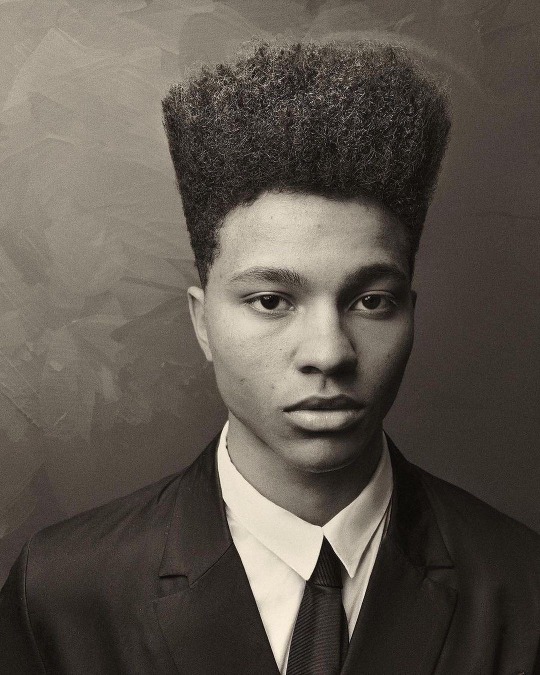
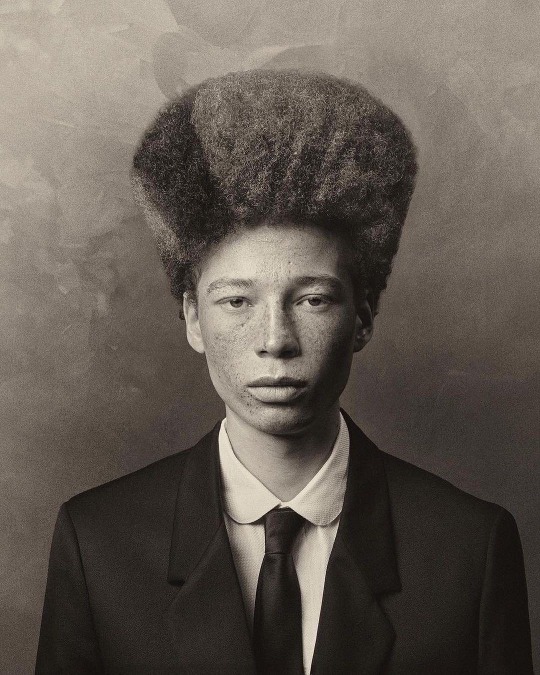

“The Muse Collection is a celebration of natural beauty. How with hair we can create a refined poetic image that will compliment and elevate the natural and honest beauty of our muse.”
Via: @cultureicontv
Hair @domcapel
Photo @baterandstreet
Makeup @chrishowellsartistry @farhanaaliart
Models beatrice.okpara @isaacbb1023 @stephyoungg_ @fabiennenokukhanyaleleux @emkaimodelagency
399 notes
·
View notes
Text
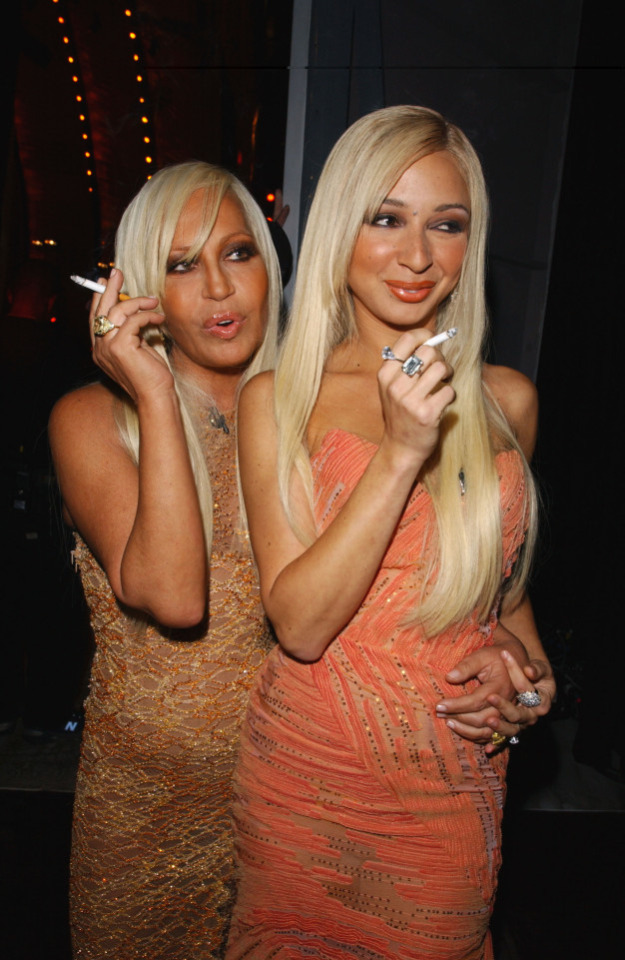

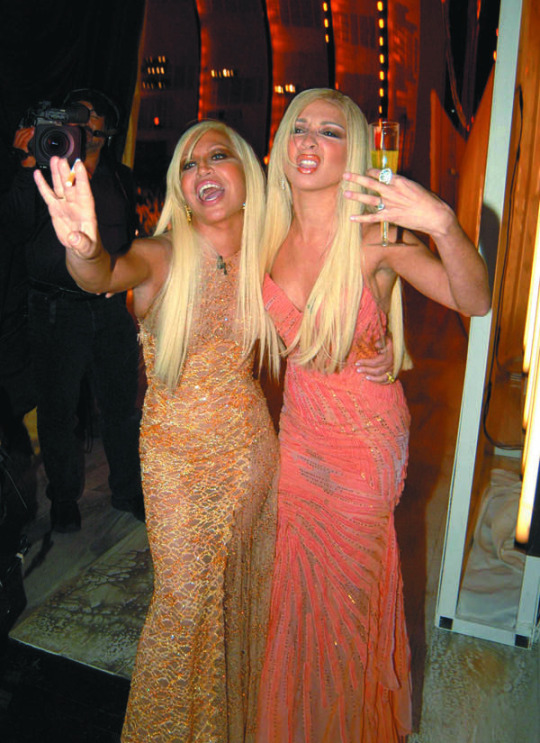
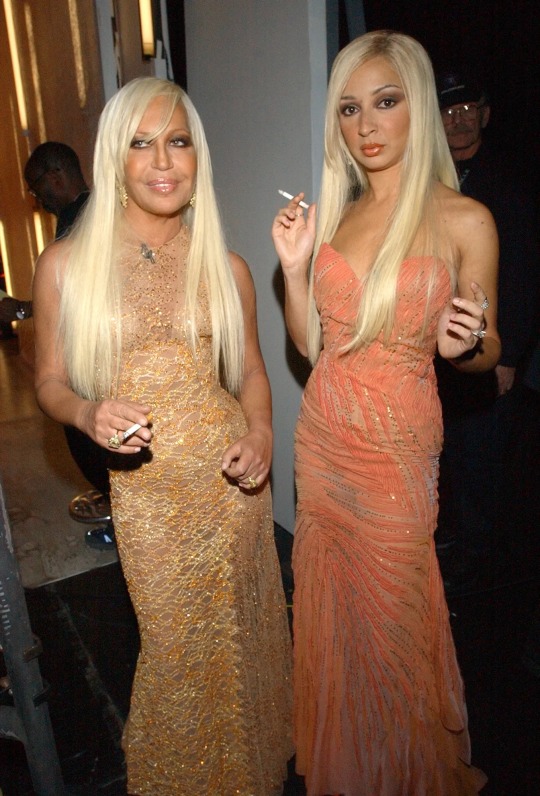
Donatella Versace and Maya Rudolph in 2002
#donatella versace#maya rudolph#versace#2002#celebrities#iconic#pop culture#hollywood#fashion#movies#2000s#2000s nostalgia#2000s aesthetic#2000s fashion#2000s icons#2000s tv#2000s style#2000s movies#early 2000s#2000s core#2000s internet#snl#00s#00s fashion#2000s cinema#fashion designer#actress
1K notes
·
View notes
Text

#ryan dunn#jackass#00s#00s gifs#jackass gifs#mtv#jackass the movie#2000#2000s culture#pop culture#iconic#movie gifs#tv show gifs#wasabisnooters#rhettergifs
475 notes
·
View notes
Photo
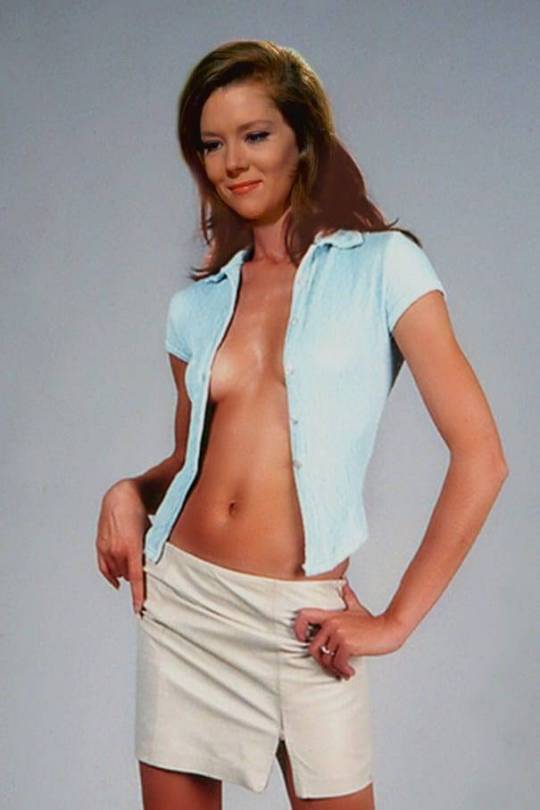
I hope there's a tinge of disgrace about me. Hopefully, there's one good scandal left in me yet.
- Dame Diana Rigg
#rigg#diana rigg#actress#film#tv#avengers#bond girl#shakespeare#theatre#arts and culture#culture#british#femme#beauty#icon
582 notes
·
View notes
Text

Roar of a king
#godzilla#titan#monsters#giant monsters#kaiju#gojira#king of the monsters#gods and monsters#monsterverse#pop culture#icon#legacy of monsters#monarch: legacy of monsters#godzilla: king of the monsters#movies#movies and tv#streaming
20 notes
·
View notes
Text

TheCrownNetflix "All one wants is for that girl to find peace."
#the crown netflix#cinemapix#the crown season 6#the crown#elizabeth debicki#tv and film#the crown final season#actress#princess diana#cultural icon#diana spencer#thecrownnet#1990s#award winning#tv series#streaming#netflix#coming soon#binge#binge worthy#award worthy#best drama#drama series
37 notes
·
View notes
Text

#hannibal#lisboa#portugal#2013#media#television#hannibal lecter#tv#advertising#lisbon#culture#2010s#mads mikkelsen#travel#icons#actor#lifestyle#street#cityscape#horror#🍷
73 notes
·
View notes
Photo

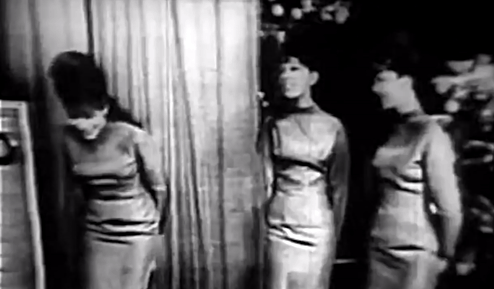
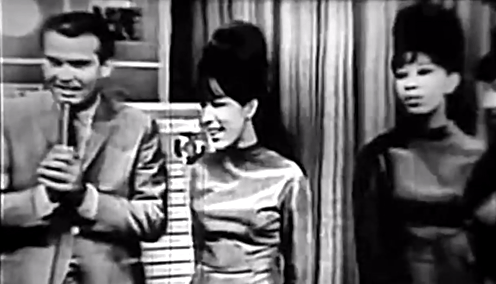



The Ronettes first appearance on American Bandstand (1963).
#the ronettes#american bandstand#1963#girl group#be my baby#ronnie spector#estelle bennett#nedra talley#black women#black girls#african american#african american women#black culture#black beauty#dick clark#tv show#singers#icons#music#rock & roll#60s#early 60s#doo wop#beehive#black music#retro#vintage#rare#gifs#sbrown82
483 notes
·
View notes
Text
Happy 97th Birthday to Academy Award Winning, 4x Emmy Winning, 3x Grammy Winning, 3x Tony Winning writer, actor, comedian, filmmaker Mel Brooks! ^__^
#geek#film#blog#happy birthday#actor#filmmaker#tv#academy award winner#mel brooks#the producers#blazing saddles#young frankenstein#high anxiety#history of the world part 1#history of the world part 2#spaceballs#life stinks#robin hood men in tights#pop culture icon#get smart#egot#geek with clip ons#i review stuff#irs
39 notes
·
View notes
Text
You're Serious? - The Time Warrior, 1973
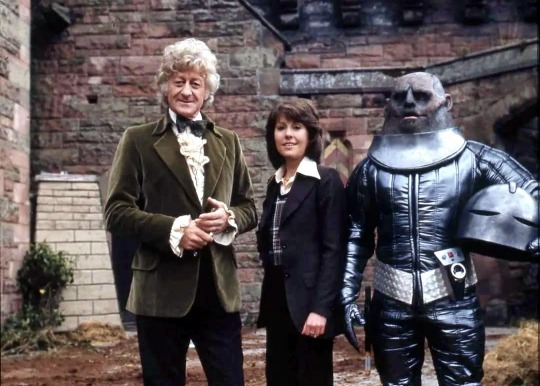
A fact that is becoming somewhat lost to time is that Jon Pertwee's time on Doctor Who was very popular. This is not to say that the Pertwee era is largely disregarded in 2024 but it does seem readily apparent, as time marches on, that the prevalence of Pertwee as a definitive, monolithic icon for the general public has naturally dwindled. Or, perhaps, dwindled is the wrong word – Pertwee's Doctor has truly been eclipsed by even mightier, entirely totemic icons that came in his wake. David Tennant is THE Doctor and the only other challenger remains the indomitable Tom Baker.
But back when I was a kid, circa 2004/2005, Jon Pertwee's era was definitive. My mum, who grew up in regional Australia, recalled fond memories of watching Pertwee and Katy Manning pal around with the Brigadier. A formative step in my journey as a fan was a visit to Hobbyco in Sydney and begging my mum for the Corgi Doctor Who 40th Anniversary Gift Set of die cast models. Like any number of similar curios that shape fan memories, this particular set cemented what were, to my mind, the most iconic building blocks of the series – the Doctor (a S18 Tom Baker, presumably for painting reasons), the TARDIS (not to scale with the rest of the models), K-9 (with lettering in both sides), the Daleks (a Chase model), Davros (no notes), the Cybermen (Earthshock model that I apparently either never got or immediately lost since I have not memories of owning one) and Bessie (also not to scale), driven by Tom Baker. I vividly recall purchasing the set and the guy at the counter being excited to strike up a conversation. He was obviously a fan and talked fondly about the highlights of the series. What I realised in the years that have flowed on since is that, despite speaking highly of the Fourth Doctor and Sarah Jane, the most vivid of those rosy fan memories, the ones he and many other adults always relayed to me pre-revival, were of UNIT and the Master and the Sea Devils and Bessie* and the Axons and the Sontarans.
Put into perspective, this makes a great deal of sense. Leaving aside my home country's personal context (mid-'70s DW was infamously repeated on the ABC, a fact that was immortalised in DWM #104 when Tasmanian Jamie Hillard complained of the tedium of seasons eleven to fourteen being repeated twice a year, every year for the past five years. He was suitably rinsed by the UK fandom), Jon Pertwee's era was the most popular Doctor Who had ever been. While the show chugged along just fine during Troughton's tenure, it was in dire straits when producer Barry Letts inherited it partway through production of season seven, Pertwee's first, in 1970. It was only off the strength of what made it to screen that the programme was renewed at all. Throughout the four years that followed, Letts and script-editor Terrance Dicks retooled Doctor Who from Derrick Sherwin's vision of a hard-edged, political sci-fi thriller into the more accessible glam-infused comic-book show that raked in as many as ten million viewers a week for the first time since 1965.
But a good thing only lasts so long and, by the time of late 1973, just as Doctor Who was kicking off its eleventh season, it felt like a natural end was coming to what had been an incredibly successful five years. Pertwee’s Doctor Who had became an institution in its own right. Not to get too ahead of myself but there is a strong case to be made that Tom Baker and the Philip Hinchcliffe's era ascent to being the most popular the show ever was in its original run owes as much, if not more, of its success to the goodwill and steadily rising audience of the Pertwee years than it does to its actual quality (and it is of a very high quality). This is entirely hyperbolic but I strongly believe that had anybody else been cast as Pertwee's successor, anything less than the perfect storm we got, the Letts/Dicks/Pertwee run of the show would send out as the cultural peak even today. Bessie and the Brig would be wheeled out by the norms instead of the long scarf and K-9, that you can believe,
As everybody reading this article would know, the earthbound stories of Pertwee's time were notable for a distinct 'family feel', so to speak. Unlike previous eras, and any until 2005, the Third Doctor had an ongoing, regular supporting cast of UNIT personnel and assistants as well as the recurring threat of Roger Delgado's Master. There is a familiarity and comfort to the Third Doctor's run. Over the course of the previous year’s season ten, however, Letts and Dicks decided that the format had well and truly run its course and the Doctor was propelled into space and time full-time once again, leaving behind the UNIT regulars as merely recurring characters. It was during this production cycle that Katy Manning had decided that it was time for her to move on from the show, departing at the end of The Green Death, the last story broadcast that season. The final serial of season ten's production block, however, was actually the first story of season eleven – The Time Warrior.
Throughout the 1973-74 season, a slow (and conscious) dismantling of the Pertwee era begun taking place as well as a distinct sense of a lap of honour for the previous four seasons. In real life, this begins with Manning's departure in 1973 which, while her own instigated decision, was encouraged by Letts for fear his two stars would jump ship at the same time. Letts and Dicks had themselves decided to move on by the time season eleven proper began production which ultimately left Pertwee, self-conscious of his self-proclaimed team breaking up, finally deciding to give up the reigns after the tragic death of Roger Delgado. Onscreen, of course, this plays out somewhat quietly masterful. Malcolm Hulke's Invasion of the Dinosaurs is a conspiracy laden, political thriller such as those of season seven (detractors would call it parody) and saw the departure of now disgraced UNIT captain Mike Yates. Death to the Daleks (the hardest to square this circle, tbf)called back to the season ten’s epic return of the ‘60s Dalek adventure and offered the last gasp of the traditional, Hartnell style adventure serial that still permeated across Pertwee's time. The Monster of Peladon offered a direct sequel to the fan-favourite from season nine with some nice, deliberate telegraphing of the Doctor's oncoming death. And then there's the grand finale, Planet of the Spiders, where the Third Doctor departs the show with his remaining UNIT family under a series of self-referential and, frankly, indulgent circumstances set off by his own cavalier behaviour. Season eleven is a twenty-six episode finale for the Pertwee era that retreads all of the highs and exposes its limitations quite deliberately. With all of this in mind, The Time Warrior, the series opener, is entirely lacking in this sort of farewell mentality stands out as something of a different beast for the year.
For each of their seasons on the job, Letts and Dicks made a conscious effort to open each year with a big event and season eleven was no exception. After an absence of eight years (no, The Time Monster doesn't count), the duo thought that it was time for the return of the historical story. Somebody who disagreed, however, was Robert Holmes. Holmes had been a frequent contributor over Dicks' tenure as script-editor and was less than enthused that his proposal, The Automata, was rejected for him to be reassigned an historical. Dicks suggested an adventure be set in and around a medieval castle (it was filmed between Peckforton Castle and Wessex Castle to stunning results) and Holmes agreed only on the proviso that no famous historical figures were to be featured and that strong science-fiction elements were to still be included. The story that made it to screen has become one of the most renowned and celebrated in the history of the show. Frequently, I see it touted up alongside the all-time greats in the franchise as one of the very best and a real highlight of Jon Pertwee’s time in the show. While I think that The Time Warrior is very good, and there is a lot that I really like about it, this level of high praise has never sat entirely well with me. I don't even really have a lot to say on it. I like it a lot, it is the highlight of season eleven and one of many high points of Pertwee's run, but I have never found it to be an unshakable classic.
Let's not get too in the weeds too soon, though because Robert Holmes was a magnificent writer. Despite his personal disinterest, the man took his brief seriously clearly put in a lot of thought into getting the most out of this particular assignment. There is almost an overabundance of wit and charm and character to The Time Warrior's ensemble. As with most sharply intelligent people, Holmes was also obviously quite cynical and Instead of leaning into something fantastically Arthurian or romantically noble, he opted for a medieval world of pure grime and nastiness. This could be taken as Holmes leaning fully into the historical story's roots as an educational programme, insisting upon the most realistic depiction of the middle ages he could on a BBC budget for a family audience. I find this hard to believe. No, what Holmes was far more likely to do, and did, was recognise that this approach would have worked perfectly well and then take the next step which is basically to take the piss out of it. The Time Warrior is not just a witty script, it is hilariously absurd and over-the-top in every aspect of its conception. Irongron and Bloodaxe are laughably incompetent and self-absorbed but the pair it is in how gleefully squalid and brutal they are that Holmes relishes in. Yes, there is a realism to The Time Warrior in that it is not the Shakespearean or mythic depiction one might have expected from the Hartnell days how but the over-exaggeration of the repulsiveness and savagery of medieval life is what I truly adore. Mind you, this is largely just what's on the surface. Holmes is obviously doing here is writing an exaggerated depiction of middle-aged England that is functionally indistinguishable from England as it was in 1973. Holmes basically invented Blackadder. As great as this is, though, it doesn't always work in its favour. We'll get to Sarah Jane shortly.
A different aspect of this serial that has made it so iconic is its main villain. Determining that a small-scale threat would be easier both for him and for the production team, Holmes’ plot revolves around a single alien menace attempting to find his way home. Allegedly inspired by his recent reading of the On War treatise, Holmes was compelled to create an entirely militaristic villain and what he created was the character of Commander Linx, as performed by Kevin Lindsay. However well Linx is realised in the story, as much praise as anyone needs to be directed to make-up designer Sandra Exelby and costume designer James Acheson for their realisation of him. Linx, and by extension the Sontarans themselves, is a grotesque creature with a troll-like quality. It has not escaped notice for many that the species design is built around an extended gag – that part one cliffhanger. Still, fans continuously fail to appreciate just how goddamn funny Linx is. The characterisation is brilliant and nobody behind the scenes, until Steven Moffat, seems to realise that this is why he works.
Holmes, in no genuinely dramatic way, utilises Linx as a threat. What he is instead, besides a visual joke, is a scathing satire of militaristic ideals. That avenue also lends itself perfectly to the exaggerated depiction of the middle-ages. In his first scene, Linx emerges before the primitive natives, in strange armour with advanced weaponry, and claims that this new land now belongs to the Sontaran Empire as he plants a flag and assumes dominance over the people. It doesn't require much analysis to decipher what's happening here. Throughout the story, Linx, whose lines almost entirely consist of spouting rhetoric, offers to make weapons for the humans he's met, all the while condescending them and caring little for their lives and livelihoods. It's a simple but fantastically clever move; Holmes has taken the opportunity to depict the English, typically at one of their most mythic and noble periods, as a cowardly and cruel race to be easily oppressed and mocked.
The Time Warrior also sees the debut of another mainstay in Doctor Who lore in Sarah Jane Smith. Created by Barry Letts in direct contrast to her predecessor, Sarah Jane was pitched to directly address accusations of sexism that the series had garnered by being an obviously capable, career-driven, feisty and adventure-seeking investigative journalist. Incredibly, the role was cast before Elisabeth Sladen had even auditioned and, if to weren't for an uproar made by Pertwee due to his not being consulted, the part would have gone to April Walker show was paid out of the part when Letts cast Sladen (after he'd arranged for her to meet Pertwee, of course). For perhaps the wrong reasons, Pertwee was entirely correct though. From her first appearance, it is impossible not to be enamoured by Elisabeth Sladen. She just has a natural charm in this role and a captivating quality that makes her so very easy to watch.
As introduced in The Time Warrior, Sladen is certainly strong. She is well-defined, well-performed and plays a major role in the events of the plot. She is also at the core of the serial's biggest stumbling block which can come down to Holmes' poorly pitched snark. It is certainly one of Holmes’ regular tricks to lean heavily into sardony and lampshading things that, he at least considers to be, regressive and absurd ways of thinking. Sometimes this can really serve the story the is telling and the characterisation, it does so elsewhere in this one. Here, however, I think he misses the mark drastically and it comes off very poorly. In making the world of The Time Warrior such an exaggerated and vitriolic comment on contemporary Britain, Sarah has little place to assume control in the narrative and is rather brutally victimised by it.
Sure, Sarah Jane is firmly established as a feminist icon and it is a fine idea to drop her into the wretched sexism and reality of how horrible women were treated in the Middle Ages but emphasis is all wrong and it comes off so mean-spirited to me. In a similar vein, so much of the Doctor’s dialogue is designed to tease her about her strong values. The effect of all of this is likely intended to be endearing, and it is certainly to be funny but it comes off so smug and unnecessary. Sarah's beliefs, and the entire concept of feminism by extension, are singled-out as a futile gesture. Women are put down, they have also been put down and they always will be. This is perfectly in line with Holmes' approach to storytelling and his flavour of social commentary. It is also does not work at all.
Even though the Doctor frequently becomes Holmes' mouthpiece, I must stress that Jon Pertwee is not the problem at all. At this point in his run, the actor is so comfortable and confident in his performance that it would be impossible for him to disappear in it. To be honest, this is really the last time he properly turns up during his run since the season eleven filming Despite his oddly sexist jabs, the Third Doctor is wonderfully charismatic and relaxed in this story. There is a lovely development of his character from the rather pig-headed, irrational and moody character from season seven to the more mischievous tutor role he starts to settle into here. It is a similar progression to the First and Twelfth Doctors though rarely garners the same recognition.
The Time Warrior also has a few structural problems in my opinion, especially in episode three. The penultimate quarter of a Doctor Who serial always seems to be the hardest to write without playing for time, the three act structure is so familiar for a reason, and this one is no exception feeling like it does waste quite a lot of time with the Doctor arsing. Getting out of the castle and going back in and all for no really good reason other than to stretch out the runtime. Obviously, all of the antics are fun. This is a good production and Alan Bromley's only true directorial credit but it still has a bit of a sag, in my opinion. Is The Time Warrior a bad story? Far from it. Nothing as fun and as well made as this could possibly be considered wholly bad in my books. It is flawed, certainly but there is so much here to love. In a season of greatest hits, The Time Warrior stands out like a toad-faced git, chuckling with glee at how clever it is.
Later in the year, and despite the reservations of the BBC Head of serials, Holmes would be offered the position of script-editor for season twelve. He took the offer up and, in hindsight, it makes The Time Warrior somewhat of an intriguing curio. On the one hand, this is the last product of the creative fury that was season ten. On the other, it is a tantalising glimpse into what lies ahead around the corner. The Hinchcliffe era doesn't obviously have much in common with The Time Warrior, it is a lot funnier than a lot of those stories would be, but there is a more subtle stylistic shift to be seen here. This is not a comic-book adventure serial. The action is not explosive and the dialogue is not pulpy and punchy in the same way. The Time Warrior is more literary. Not inherently a better or even more intelligent choice but the distinction is palpable. Underneath the sheen of a gritty historical is a silly story about squalid and mean characters whose lives are miserable and ambitions are low. Even with the Doctor, still under UNIT's employ, there is a clear sense of his ready to move on from this status quo. The wheels of the next era are slowly in motion. Even the title sequence has changed, slowly morphing into its next identity but it's not quite there yet. Instead of looking back on the era that is closing up, The Time Warrior sets its sights firmly on the future.
It's not even close to the best Pertwee story though.
*He did, however, question why the Bessie model featured a S18 Tom in the driver's seat saying that it was "mostly Pertwee" who drove the car. Throughout my childhood, I found it easy to reconcile this though thanks to Tom's appearance in the The Five Doctors photoshoot. It's obvious, really.
#doctor who#analysis#culture#tv#behind the scenes#history#actors#review#third doctor#jon pertwee#sontarans#sarah jane smith#sja#satire#irony#humour#sarcasm#ironic#iconic#medieval#middle ages#classic who#classic doctor who
10 notes
·
View notes
Text
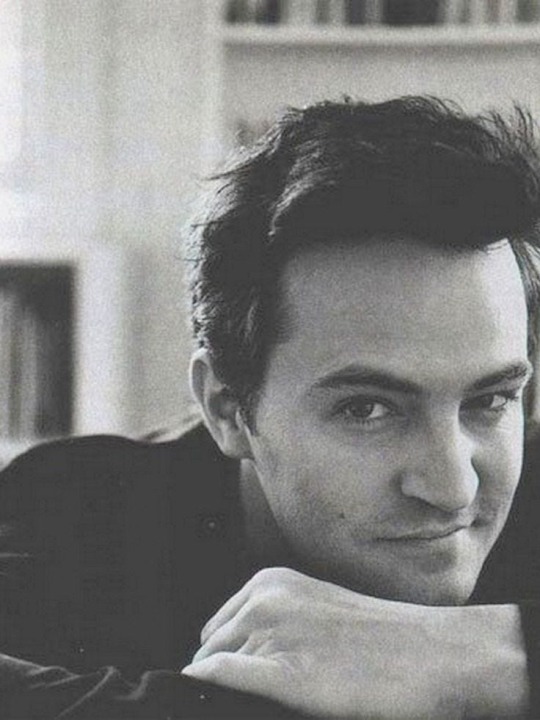
#matthew perry#chandler bing#friends#actor#friends tv#celebrity culture#celebrity deaths#b&w#celebrity#90s aesthetic#90s nostalgia#90s superstar#90s comedy#90s movies#90s#90s icons#vintage 90s#90s fashion#ruined weeknd#photo#okletsgetnuts#dunkindonutz#pop culture#pop crave#film#movie
15 notes
·
View notes
Text

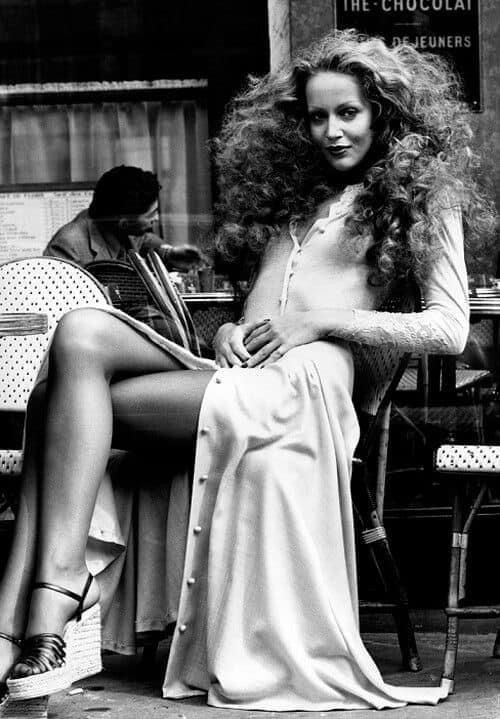

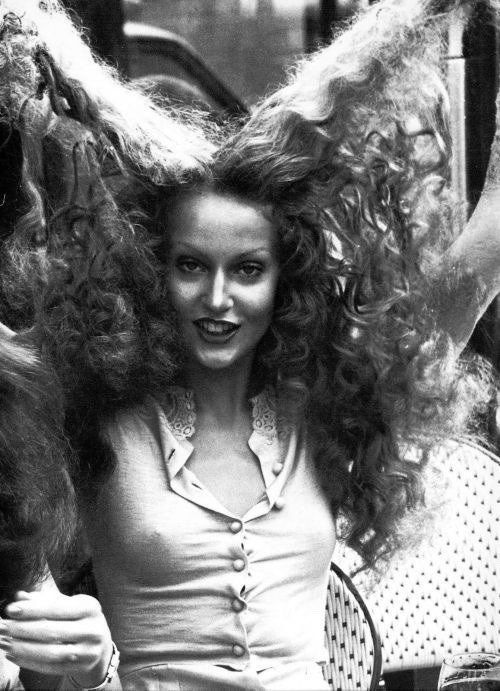
Jerry Hall at the Café de Flore in Paris, 1974 ✨
#jerry hall#paris#1974#celebrities#iconic#pop culture#hollywood#fashion#movies#1970s#1970s aesthetic#1970s vintage#1970s history#1970s tv#1970s movies#1970s style#1970s fashion#70s aesthetic#70s#70s model#actress
1K notes
·
View notes
Text
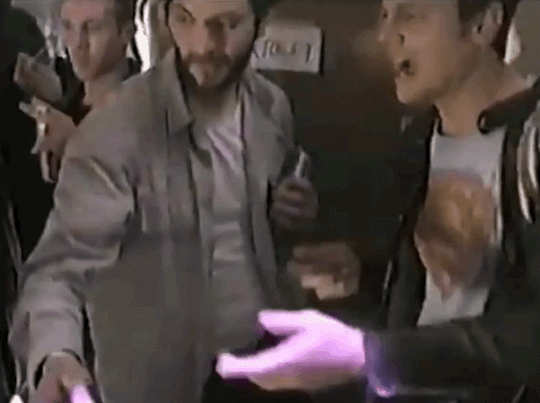
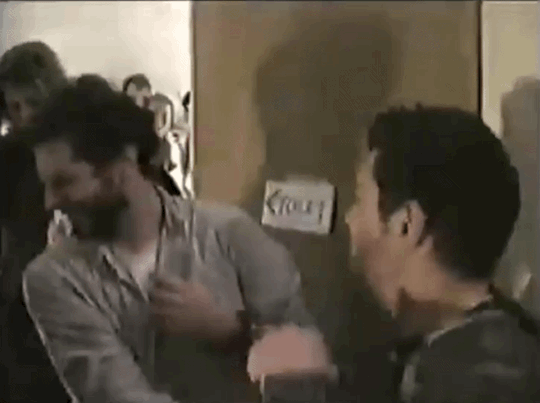

#johnny knoxville#dimitry elyashkevich#jackass#too hot for mtv#mtv#jackass fans#gifs#jackass gifs#2000#2000s#00s icons#gif set#pop culture gifs#00s tv shows#00s culture#tv show gifs#vhs aesthetic#vhs gifs#pj clapp#my gifs#rhettergifs#fan edit#my edits
161 notes
·
View notes
Text
Anonymous asked: Are you a Mission Impossible fan? I’m not a Tom Cruise fan but it’s great dumb fun. And it has a cast full of talented (and beautiful) women. You seem the type to enjoy a good adrenaline rush of a flick (I’m sure the French have a fancy cinematic term for that)
I am unashamedly both a Mission Impossible fan - of the television series and the Cruise movies - and a Tom Cruise fan.

Obviously being born decades after the original Mission Impossible tv series created by Bruce Geller was first aired in the 60s and 70s, I only had the pleasure of watching the box set episodes later in life. I have to say I loved that series. I loved when they hatched the plan. Loved the fake masks. And of course I loved the Lao Schifrin music - one of the most recognisable signature themes in music and TV history.
Classic television has a bit of a blessing and a curse working on it. Most shows of the Golden Age of television didn't have a structured narrative through-line. The idea that one episode will build upon the next is a pretty modern concept. As such, Mission Impossible had a prescribed routine. Mr. Briggs in Season One and then Mr. Phelps in the subsequent seasons drive to a random location, find a hidden mission briefing that self destructs, discusses the plan with the team, and then they execute the mission.

There wasn't much variation to the structure. Thankfully by season three, they got rid of the silly waste of time where Jim Phelps selects his team - because aside from the random guest the team was virtually the same from episode to episode. The thing that changed was how the team pulled off their mission. It was always a mixture of subterfuge and fancy fakery, but it was always exciting and the great team of writers, directors, and the dynamic cast always kept the audience just enough out of the loop for there to be plenty of surprises and suspense.
It's not that Season One wasn't any good, but you could really feel the show was still working itself out. Steven Hill as original team leader Daniel Briggs is decent enough, but he's just not as interesting a performer as Peter Graves as Jim Phelps. Graves is indelible to the show. But it's not just who leads the team that made the show - it was the great actors who made up the series regulars. Greg Morris as Barney Collier and Peter Lupus as Willy Armitage are always great as the tech masters and inside guys who narrowly complete their tasks with milliseconds to spare. Husband and Wife duo Martin Landau as Rollin Hand and Barbara Bain as Cinnamon Carter really helped cement the show through the first three seasons.

So when I got around to watching Tom Cruise’s first Mission Impossible film I was a little miffed. It seemed like the story bumped off his team - a staple of the original tv series - within the first act and the rest of the film is on Cruise control ie it’s just about Ethan Hunt. But slowly as the other MI films came out I was won over. In fact in my mind I tend to think there are two Impossible Missions Force (IMF) operating in two different universes, just because the dynamics are different. That way I don’t waste time whining on which is better or poke holes in the Cruise films for its lack of purity to the original series. I prefer to enjoy both on their own separate terms.
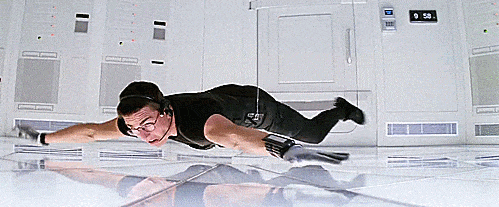
To me Thomas Cruise Mapother IV is the biggest movie star in our current culture of excess entertainment. That’s my gut feeling. The definition of a movie star, in my personal opinion, has changed dramatically. There was a time and period when the movie star was defined by the name alone. If a Hollywood star had a film coming out people didn’t know what the film was, they just saw it because of who was in it: Will Smith or Jim Carrey or even Stallone and Schwarzenegger. No one else comes close.
The two exceptions might be Leonardo DiCaprio or Keanu Reeves. I think of the two Reeves comes closest because of the success of the franchises he’s been in - The Matrix and the John Wick franchises - but he’s not a movie star. What I mean he doesn’t behave like a movie star in the sense that he is not immersed in the film business as a business nor does he cultivate his star power (he prefers to travel around on a bus and sit on park benches looking forlorn) in the way Tom Cruise does.
Interestingly there are even few directors that can open a movie on name alone. Christopher Nolan, Quentin Tarantino, and Steven Spielberg can still get people into the cinema based on their name alone, but the movie star, not so much. Audiences today want IP. They want franchises. However Tom Cruise has navigated all of that and consistently shifted.
Cruise’s dedication to big screen spectacle, also offset by interesting asides like American Made, and very underrated sci-fi and high concept films like Minority Report, Oblivion (very underrated) and Edge of Tomorrow, brings a sense of anticipation to his films. Maybe we’re there because we expect stunts, or we know that he’ll give nothing less than 100%, or it’s an example of a creatively driven project, rather than a marketing machine, but we still show up. It may not always go right, like the misfiring The Mummy or Jack Reacher (where he felt miscast in both), but Cruise has his sure-fires and his surprises.

When a movie like The Mummy doesn’t work out, he reimagines Mission: Impossible, and he is able to take what everyone loved in the 80s about Top Gun and magnify that to what the audience wants today. Honestly, did anyone expect Top Gun: Maverick to be the box office behemoth it has been? I expected it to impress, to be a good example of Cruise’s fervent passion for as much practical work as possible (as opposed to doing 95% with CGI), but after 36 years, that it’s his highest grossing film ever - and the highest-grossing movie of 2022 - is impressive.
It helps that he almost never 100 percent disappears into his roles; we still get that Tom Cruise smile and stare no matter who he’s playing. And the fact that he still looks like 1980s-era Tom Cruise only adds to the lustre. Indeed when Tom Cruise does it, whether that’s fighting for justice in a courtroom, making cocktails, jumping off a roof, flying a fighter jet, or even singing “I Want To Know What Love Is” shirtless while wearing leather pants, we’re like, ‘Sure. I buy that.’ He’s relatable even when what he’s doing on screen is so far removed from our reality that it’s insane. There is a grounded matinee idol musk to Cruise’s presence on screen that seems to transcend class and political divides. He’s America’s hero and the nice guy who is tough with a sensitive side, as well as the kind of wisdom that impresses but never intimidates. He’s Hollywood’s fine wine.
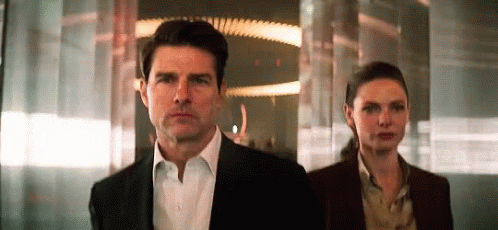
Tom Cruise is not only the biggest movie star working today, he’s the last movie star working today.
There are plenty of actors who people recognise, and the right combination of actor and role can still be explosive, like Keanu Reeves. But “Tom Holland as Spider-Man” is a very different thing than “Tom Holland as anything except Spider-Man,” and to some degree, that’s by design. Studios would rather own the biggest part of the equation. Tom Cruise doesn’t need your IP, though. Tom Cruise is the IP. People buy a ticket to see Tom Cruise, and they do that because Tom Cruise has figured out how to be the most Tom Cruise that any Tom Cruise could ever hope to be, and every time out, he does his very best to turn the Tom Cruise up just a little bit more.
When he was younger, Cruise built his career by trusting himself and his image to the very best directors he could find, slowly refining a certain kind of alpha masculine ideal. What makes his late-era stardom more remarkable is how he only transitioned into action movies once he was in his 40s, and he has pushed himself harder than arguably any action star of any age in the last few decades. When you see a Tom Cruise film and you see an insane stunt, part of the kick is knowing that’s really him and that he’s entering his fourth decade of being an icon.
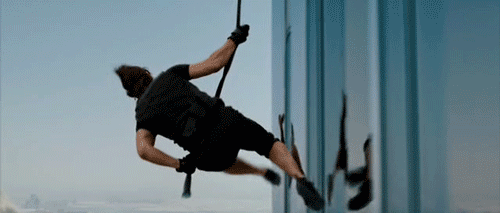
That Cruise almost died after becoming entangled in his parachute in the water in Top Gun was somewhat irrelevant, because it was this first Mission: Impossible where Tom Cruise: Stunt Man was also born. From the infamous wire descent, to leaping out of a window to outrun a surge of water from the restaurant he’d just blown a window out from, Cruise was in on the action.
If audiences didn’t quite get that dedication to being visibly involved in the action then, they certainly would by the time he made the more action packed second film, directed by John Woo. M:I 2 cemented the lure of the Cruise stunt. From mountain leaps, to motorcycle rides and more, Cruise set a new expectation for his work going forward. It was a string to his bow, a selling point, and it has proven a tool of forgiveness and resurrection even as his career has threatened to implode under off screen contention.

I think that’s why we rush to go and see the next Mission Impossible film. It’s not for the thread-bare plot or the fantastic action - although it’s better than most action franchises these days. But it’s the mind blowing stunts which we know is not CGI driven nor is done by a stunt double. It’s done by Tom Cruise himself.
He is the Tom Brady/Mark Cavendish/Ronaldo/Roger Federer (delete as appropriate) of movie stars, not just because of his success, but the longevity of his career, as he has found ways to adapt to each change in the industry while also not giving in to what others have had to do.
The key thing is he adapts just enough to make it fresh. The Mission Impossible films are a case in point. Even as the stunts have got bigger, more dangerous, and more spectacular (as all franchise films must it seems), the characters portraits and arcs have got more intimate and more relatable.
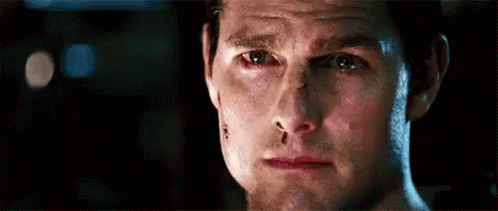
In the MI movies he is of course super spy Ethan Hunt but he’s not super-human. But Tom Cruise’s secret is that even when appearing borderline super-human on screen, there’s still an air about him that makes the viewer want to be him or be with him and believe that’s possible. There’s an old-school debonair swagger and a hot everyman to him that many movie stars lack. Dwayne Johnson is many things, including a mountain of a man and a brilliant business person, but few of us could carry that off or believe that what he’s doing on screen is something we could replicate. Inspire, sure, but we could never be him. With each film the character is finding it harder and harder to be cocky and confident. There is a world weariness etched on his strained face. He barely wins fights and often he relies on others to help him or bail him out. Cruise is self-aware that he is getting older, like his character. It’s these little details which count.
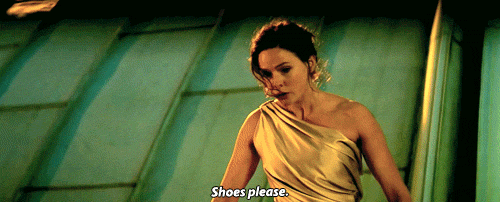
Interestingly, I find his women character also infinitely more relatable than any current iteration of the action female heroine. Marvel are lost in swamp of woke feminist BS where all their franchise films have to be led by the cookie cutter ’Strong Single Female’ - the one who doesn’t need mentoring (because that’s just sexist mansplaining); can pick up a life time of a superior set of skills in a matter of seconds; can beat to a pulp a man much stronger than she is; she never falls, stumbles, or fails like the men do; and she alone saves the day of course. Look at Rey in Star Wars or Captain Marvel in the MCU or even Phoebe Waller-Bridge’s character in the latest risible Indiana Jones film and tell me any of that isn’t true.

The women in MI franchise are far more relatable within the context of a hyper-realised film about super spies but not beyonds the laws of gravity. They are strong, independent, smart, sure. But they are also feminine and vulnerable. They fight like skilled women and not prize fighters that play to their feminine strengths (they get punched a lot in the gut and it shows). More importantly, they fuck up and fail, but they still come and help others to save the day. From Emmanuelle Beart to Thandie Newton to Rebecca Ferguson, these are kick ass women but in a much more believable way than any Marvel movie she-heroine. Go back and see these movies and you will see what I mean.
What I also like about him is the vibe he gives off that he cares deeply about his movies. It’s not a cynical exercise in money. Of course ego is a different matter, but I’ll give him a pass because he is the consummate professional and perfectionist about his craft. To me Tom Cruise is one of the few performers today who generally thinks of the audience first. Maybe even to his own detriment. But you can tell with everything he does, in all of his films, there is a different kind of commitment he makes to the audience. He actually gives the impression that he cares about giving his audience a good time.

Moreover, to hear it from Cruise himself, as we did during leaked audio of the dressing down he gave M:I7 crew members who were flouting COVID-19 safety regulations: “That’s what I sleep with every night - the future of this fucking industry!” Cruise makes a grand spectacle of carrying every film on his back, so it’s never in question who calls the shots or who, rather than what, makes the movies cinematic. Cruise’s power as a producer really deserves kudos for this. His steadfast aversion to shrinking theatrical windows for any of his projects, and his continued allegiance to, especially in the case of his flagship franchise, adding more ambitious stunts and exotic locations with every entry.
He doesn’t do television. Don’t you dare ask him about streaming. Other stars have also made that transition to streaming. You might call it selling your soul. Deals with the devil. We’ve seen other films in difficult circumstances, having to change their models to incorporate simultaneous streaming and cinema releases. Dwayne Johnson had seen a decline in box office revenue prior to the pandemic that has seen him go a little safer with more Disney material, as well as become a big fish in the Netflix pond. Cruise however… is all about the big screen experience.

Everything Cruise does is about maintaining his star power in the face of any and all obstacles, from a diminished global box office and studio manoeuvring to his own mortality. His legacy decades since secured, Cruise’s latest impossible mission appears to be nothing less than saving the movies themselves.
For that reason and that reason alone, I will always take time to see a Tom Cruise movie especially his Mission Impossible franchise films. Roll on summer. Cue the Palo Schifrin guitar chords. And action!
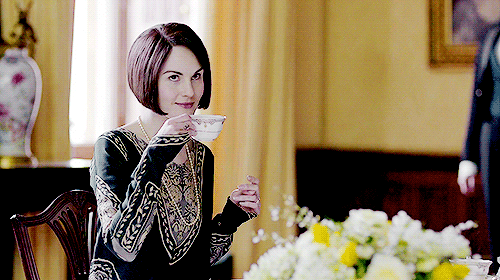
Thanks for your question.
#ask#question#mission impossible#tom cruise#tv series#movies#cinema#film#hollywood#spies#arts#culture#stunts#marvel#mcu#hero#icon
44 notes
·
View notes
Text




MTV Photo Booth (1999 -2008) 📸
#mtv#90s#2000s#nineties#the nineties#the 90s#00s#y2k#pop culture#pop culture icons#photo booth#tv#britney spears#paris hilton#madonna#hilary duff#olsen twins#mary kate and ashley#mary kate olsen#ashley olsen#aaliyah#aaliyah haughton#mariah carey#johnny depp#adam sandler#lindsay lohan#jlo#jennifer lopez#xtina#christina aguilera
346 notes
·
View notes
Text

Bern Nadette Stanis and Eddie Murphy
#black tumblr#black literature#black excellence#black girl magic#blackexcellence365#black comedian#comedian#tv actress#eddie murphy#bern nadette stanis#70s icons#70s tv series#good times#beautiful#black actors#actor#american actress#african american culture#american actor#black tv#classic tv#beautiful black women
122 notes
·
View notes